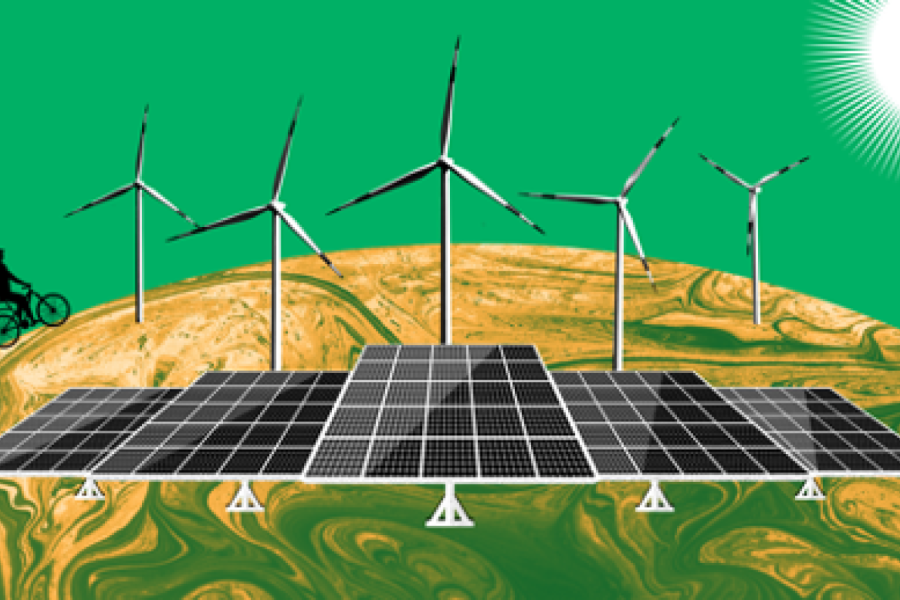Toward a net-zero future
The UN Campaign for Individual Action
To preserve a livable climate, greenhouse-gas emissions must be reduced to net zero by 2050. Bold, fast, and wide-ranging action needs to be taken by governments and businesses. But the transition to a low-carbon world also requires the participation of citizens – especially in advanced economies.
ActNow is the United Nations campaign for individual action on climate change and sustainability.
Every one of us can help limit global warming and take care of our planet. By making choices that have less harmful effects on the environment, we can be part of the solution and influence change.
Use the app to log your actions and contribute to the global count.
Energy and transport are key

Much of our electricity and heat are still powered by coal, oil, and gas. Airplanes and cars also run mostly on fossil fuels. To reduce your carbon footprint, use less energy at home, switch to a wind or solar-energy provider, skip a long-haul flight, and drive less.
Follow the High-level Dialogue on Energy
Read about the Global Sustainable Transport Conference
Food matters

The production, processing, transport, consumption, and disposal of food all contribute to greenhouse-gas emissions. To reduce your impact on the climate, buy local and seasonal food, eat more plant-based meals, use up what you have, and compost any leftovers.
Learn how you can be a food hero
Read about the UN Food Systems Summit
The Race to Zero is on

Concrete steps by all sectors of society will determine our ability to rapidly transition to a climate-resilient future. Speak up: Appeal to world leaders, encourage your city, region and university, and urge businesses to take urgent action toward net-zero emissions.
Start with ten impactful actions
Our lifestyles have a profound impact on our planet. Our choices matter. Around two-thirds of global greenhouse gas emissions are linked to private households. The energy, food, and transport sectors each contribute about 20 per cent of lifestyle emissions. From the electricity we use, to the food we eat and the way we travel, we can make a difference.
Start with these ten actions to help tackle the climate crisis.
For more tips, and to log your actions, download the app.
- Save energy at home: Much of our electricity and heat are powered by coal, oil and gas. Use less energy by lowering your heating and cooling, switching to LED light bulbs and energy-efficient electric appliances, washing your laundry with cold water, or hanging things to dry instead of using a dryer.
- Walk, bike, or take public transport: The world’s roadways are clogged with vehicles, most of them burning diesel or gasoline. Walking or riding a bike instead of driving will reduce greenhouse gas emissions -- and help your health and fitness. For longer distances, consider taking a train or bus. And carpool whenever possible.
- Eat more vegetables: Eating more vegetables, fruits, whole grains, legumes, nuts, and seeds, and less meat and dairy, can significantly lower your environmental impact. Producing plant-based foods generally results in fewer greenhouse gas emissions and requires less energy, land, and water.
- Consider your travel: Airplanes burn large amounts of fossil fuels, producing significant greenhouse gas emissions. That makes taking fewer flights one of the fastest ways to reduce your environmental impact. When you can, meet virtually, take a train, or skip that long-distance trip altogether.
- Throw away less food: When you throw food away, you're also wasting the resources and energy that were used to grow, produce, package, and transport it. And when food rots in a landfill, it produces methane, a powerful greenhouse gas. So use what you buy and compost any leftovers.
- Reduce, reuse, repair, recycle: Electronics, clothes, and other items we buy cause carbon emissions at each point in production, from the extraction of raw materials to manufacturing and transporting goods to market. To protect our climate, buy fewer things, shop second-hand, repair what you can, and recycle.
- Change your home's source of energy: Ask your utility company if your home energy comes from oil, coal or gas. If possible, see if you can switch to renewable sources such as wind or solar. Or install solar panels on your roof to generate energy for your home.
- Switch to an electric vehicle: If you plan to buy a car, consider going electric, with more and cheaper models coming on the market. Even if they still run on electricity produced from fossil fuels, electric cars help reduce air pollution and cause significantly fewer greenhouse gas emissions than gas or diesel-powered vehicles.
- Choose eco-friendly products: Everything we spend money on affects the planet. You have the power to choose which goods and services you support. To reduce your environmental impact, buy local and seasonal foods, and choose products from companies who use resources responsibly and are committed to cutting their gas emissions and waste.
- Speak up: Speak up and get others to join in taking action. It's one of the quickest and most effective ways to make a difference. Talk to your neighbors, colleagues, friends, and family. Let business owners know you support bold changes. Appeal to local and world leaders to act now.























